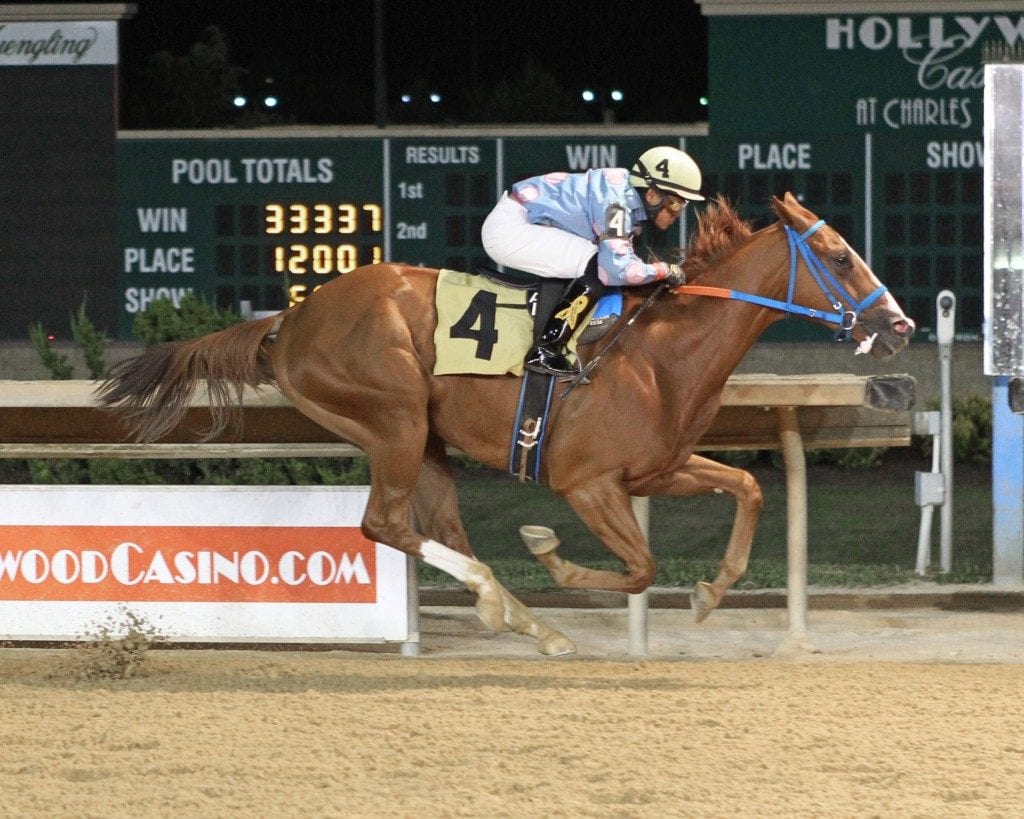William and Mary logs emphatic Tri-State win

William and Mary, here shown in the Henry Mercer Memorial Stakes, won the Tri-State. Photo by Coady Photography.
by Frank Vespe
The bridgejumpers were out, pouring money into the first race at Charles Town January 10. And they earned themselves a tidy 10 percent profit.
Bettors poured more than $260,000 into the win-place-show pools in the first, the seven-furlong, $50,000 Tri-State Stakes for three-year-olds, most of it on the talented James Casey-trained William and Mary. That figure represented nearly 20 percent of all the money wagered on Charles Town’s nine-race card.
William and Mary, a winner three times in four starts prior to last night’s work, went off at 1-9 and went on to prove clearly best, pulling away for a three-length win over John McKee’s Mr. Jacoby. Binn Goode, William and Mary’s stablemate, was along for third. Running time for the seven furlongs was 1:27.59, and William and Mary had the unusual payout lines of $2.20 to win, $2.20 to place, and $2.20 to show.
Under jockey Antonio Lopez, William and Mary bobbled slightly at the start but quickly recovered and moved to the front of the six-horse pack. True Heir wasn’t far back in second, though that duo managed the opening quarter and half-mile in moderate fractions of 24.74 seconds and 49.86.
When Lopez let William and Mary out nearing the far turn, True Heir couldn’t go with him. Mr. Jacoby, with Fredy Peltroche in the irons, made a bid on the outside nearing the head of the lane, but he, too, couldn’t go with the winner, and when William and Mary hit the wire, he was all by his lonesome.
William and Mary, a Windsor Castle gelding that Casey also bred and owns, now has four wins from five starts. The winner’s share here pushed his career purse earnings to $109,082. It was, along with the Henry Mercer Memorial, the second stakes win of his brief career, in which his only taste of defeat, in the West Virginia Futurity, came to stablemate Bound to Windsor, a once-beaten filly.
The Tri-State, typically known as the Tri-State Futurity, originally was scheduled for December but was postponed by a lack of entries. With the horses now three-year-olds, it could no longer be a “futurity,” hence the onetime name change.







